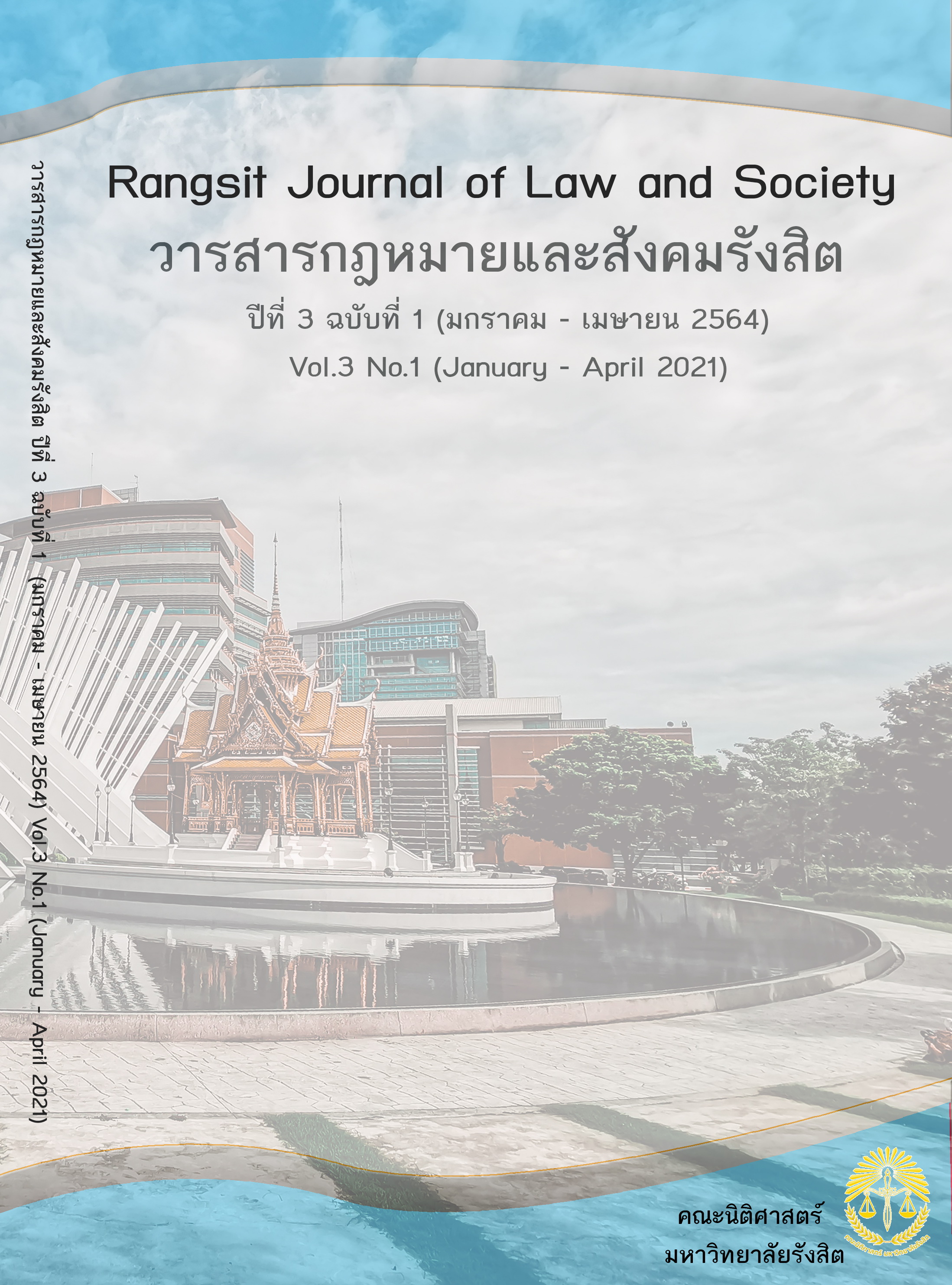การใช้โทษจำคุกตลอดชีวิตแทนโทษประหารชีวิตในประเทศไทย
Main Article Content
บทคัดย่อ
งานวิจัยฉบับนี้มุ่งศึกษาถึงการใช้โทษจำคุกตลอดชีวิตแทนโทษประหารชีวิตในประเทศไทย โดยมีวัตถุประสงค์ของการศึกษาคือ 1. เพื่อศึกษาวิเคราะห์การใช้โทษจำคุกตลอดชีวิตทดแทนโทษประหารชีวิตในประเทศไทย 2. เพื่อศึกษาความคิดเห็นเกี่ยวกับการใช้โทษจำคุกตลอดชีวิตทดแทนโทษประหารชีวิตในประเทศไทย 3. เพื่อเสนอสาระสำคัญของร่างกฎหมายการใช้โทษจำคุกตลอดชีวิตทดแทนโทษประหารชีวิตในประเทศไทย ด้วยปรากฏข้อมูลทั่วโลกมีการยกเลิกโทษประหารชีวิต แล้ว 106 ประเทศ มี 28 ประเทศที่ยกเลิกในทางปฏิบัติแต่ยังไม่ยกเลิกในทางกฎหมาย ส่วนประเทศที่ยังมีการประหารชีวิตในทางปฏิบัติอยู่ 56ประเทศ หนึ่งในนั้นคือประเทศไทย ทั่วโลกรณรงค์เรียกร้องให้ยกเลิกโทษประหารชีวิตและเรียกร้องให้ทุกประเทศลงนามในพิธีสารเลือกรับของกติการะหว่างประเทศว่าด้วยสิทธิพลเมืองและสิทธิทางการเมือง (ICCPR) เพื่อการยุติโทษประหารชีวิต
จากการศึกษาวิจัยเชิงเอกสารและทำแบบสอบถามพบว่าการใช้โทษประหารชีวิตตามประมวลกฎหมายอาญาที่ขัดต่อหลักศักดิ์ศรีความเป็นมนุษย์ตามรัฐธรรมนูญแห่งราชอาณาจักรไทย พุทธศักราช 2560 มาตรา 4 ศักดิ์ศรีความเป็นมนุษย์ สิทธิ เสรีภาพ และความเสมอภาคของบุคคลย่อมได้รับความคุ้มครอง และหลักศักดิ์ศรีความเป็นมนุษย์ยังเป็นหลักสากลที่ประเทศต่างๆ ยอมรับ ซึ่งการประหารชีวิตเป็นการขัดกับหลักศักดิ์ศรีความเป็นมนุษย์โดยตรง นอกจากนั้นยังขัดต่อหลักสิทธิมนุษยชนและหลักนิติธรรมด้วย งานวิจัยจึงมุ่งนำผลที่ได้จากการศึกษาในการเสนอให้นำโทษจำคุกตลอดชีวิตมาใช้แทนการลงโทษประหารชีวิต ในกฎหมายอาญาของไทย อันเป็นการสร้างบรรทัดฐานใหม่ในสังคม โดยนำโทษจำคุกตลอดชีวิตมาบังคับใช้แทนโทษประหารชีวิตอย่างถาวร ที่สอดคล้องกับหลักศักดิ์ศรีความเป็นมนุษย์ หลักสิทธิมนุษยชนและหลักนิติธรรมด้วย
Article Details

อนุญาตภายใต้เงื่อนไข Creative Commons Attribution-NonCommercial-NoDerivatives 4.0 International License.
เอกสารอ้างอิง
คณิต ณ นคร. (2563). กฎหมายอาญาภาคทั่วไป. (พิมพ์ครั้งที่ 7). กรุงเทพมหานคร: วิญญูชน.
สมศรี หาญอนันทสุข. (2563). We can live without the death penalty. เรียกใช้เมื่อ 14 มกราคม 2564 จาก Amnesty International Thailand: Bangkok: www.amnesty.or.th/latest/blog/828
หยุด แสงอุทัย. (2537). กฎหมายอาญา ภาค 1. กรุงเทพมหานคร: (พิมพ์ครั้งที่ 16). สำนักพิมพ์มหาวิทยาลัยธรรมศาสตร์.
Amnesty. (2564). Amnesty International Thailand. เรียกใช้เมื่อ 10 มกราคม 2564 จาก www.Amnesty.or.th/latest/blog/828
Basic Law. (2010). Basic Law for the Federal Republic of Germany. Berin Germany: Deutcher Bundestag.
Claus Roxin. (2006). Strafrecht Allgemeiner Teil Band. 4 Auflage. München, Germany: Verlag C.H.Beck.
George P. Fletcher. (1998). Basic Concepts of Criminal Law. USA: Oxford.
Hans-Heinrich Jescheck. (1988). Lehrbuch des Strafrechts: Allgemeiner Teil. Berlin Germany: 4 Auflage Berlin.
Volker Epping. (2014). Grundrechte. 6 Auflage. Springer Germany: Hannover.

